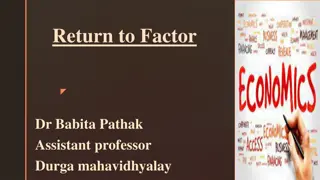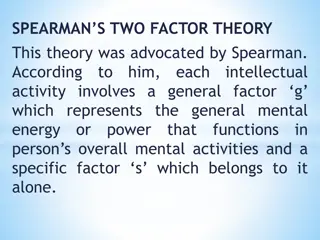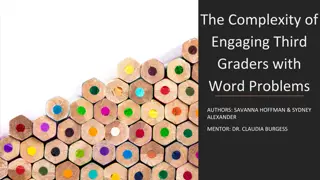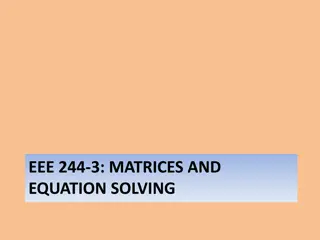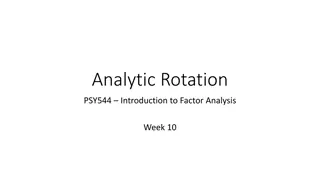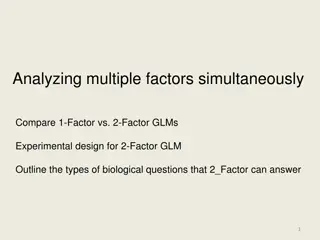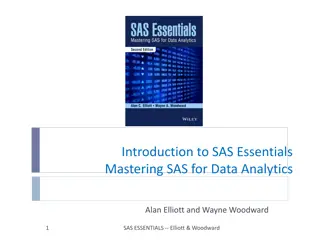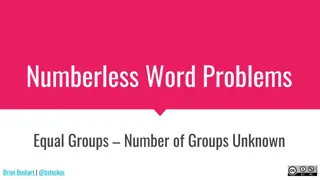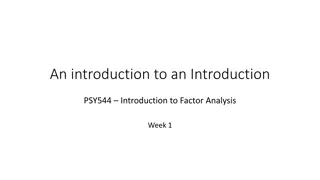Solving Word Problems with Greatest Common Factor (GCF)
In this presentation, we delve into how to solve word problems using the Greatest Common Factor (GCF). We explore scenarios where items need to be divided equally into containers, determining the least amount of containers needed and the contents of each container. Additionally, we cover the essential information required to find the answers and illustrate the process of solving GCF step by step. Lastly, we touch on the concept of the Lowest Common Multiple (LCM) and its application in recurring events.
Download Presentation

Please find below an Image/Link to download the presentation.
The content on the website is provided AS IS for your information and personal use only. It may not be sold, licensed, or shared on other websites without obtaining consent from the author. Download presentation by click this link. If you encounter any issues during the download, it is possible that the publisher has removed the file from their server.
E N D
Presentation Transcript
The class definition should be typed in here. Example: The biggest number that both numbers can be divided by. GREATEST COMMON FACTOR
Word Problems that use GCF cut things into smaller sections equally put 2 or more sets of items into the largest grouping ask how many people we can invite arrange into rows or groups
A GCF word Problem What questions are we trying to answer? Jenifer baked 30 brownies and 48 cookies to put into plastic containers for her friends at school. She wants to divide the brownies and cookies so that each container has the same number brownies and cookies. What is the least amount of containers she will need? How many brownies will be in each container? How many cookies will be in each container?
What information is needed to find the answer? Jenifer has 30 brownies and 48 cookies And wants to put them into containers that all have the same amounts of brownies and cookies GCF - we are dividing both (Common) 30 brownies and 48 cookies into equal groups(Factor) ,using the most(Greatest) amount of brownies and cookies each container
Solving GCF: List 30 (1, 2, 3, 5, 6, 10, 15, 30) 48 (1, 2, 3, 4, 6, 8, 12, 16, 24, 48) Prime Factorization 48 30 15 2 4 12 3 5 2 2 3 4 The factors in common are 2x3
Now that I know the GCF The biggest number I can divide both 30 and 48 into is 6. I will need 6 containers. How many brownies in each container? How many cookies in each container?
USE THE CLASS DEFINITION FOR LCM HERE Lowest Common Multiple
LCM Word Problems ask events that will be repeating over and over get multiple items in order to have enough Find out when something will happen again at the same time
LCM word Problem What question are we trying to answer? Pencils come in packages of 10. Erasers come in packages of 12. Lily wants to purchase the smallest number of pencils and erasers so that she will have exactly 1 eraser per pencil. How many packages of pencils and erasers should Lily buy? What is the smallest number of pencil packs and eraser packs should Lily buy, so thatshe will have exactly 1 eraser per pencil ?
What information do I need to answer the question? Pencils come in packages of 10 and erasers in packages of 12. How many packages do I need to buy of each until I have the same amount? LCM - we are trying to figure out the smallest (Least) number of pencil packs (10) and eraser packs (12) (Multiple) to have the same amount of each (Common)
Solving LCM Listmethod 10: 10, 20, 30 , 40, 50 , 60 6 packages of 10 pencils=60 pencils 12: 12, 24, 36, 48, 60 5 packages of 12 erasers=60 erasers Prime factorization 10 ( 2 ,5) and 12 (2, 2, 3) Prime factors from the largest # 12: ( 2, 2, 3) include any prime numbers from 10: (5) 2 x 2 x 3 x 5 = 60
Now that I know the LCM The smallest amount that I need, is 60pencils and 60 erasers, to have exactly one pencil per eraser . That means I will need 6 packages of (10) pencils and 5 packages of (12) erasers .
GCF and LCM They both deal with the relationship between 2 numbers. GCF is looking for the greatest factor that numbers have in common (divide). Taking two numbers and putting them into equal groups. LCM is looking for a multiple that two or more numbers have in common (multiply). Taking the numbers and continuing a pattern until they meet.
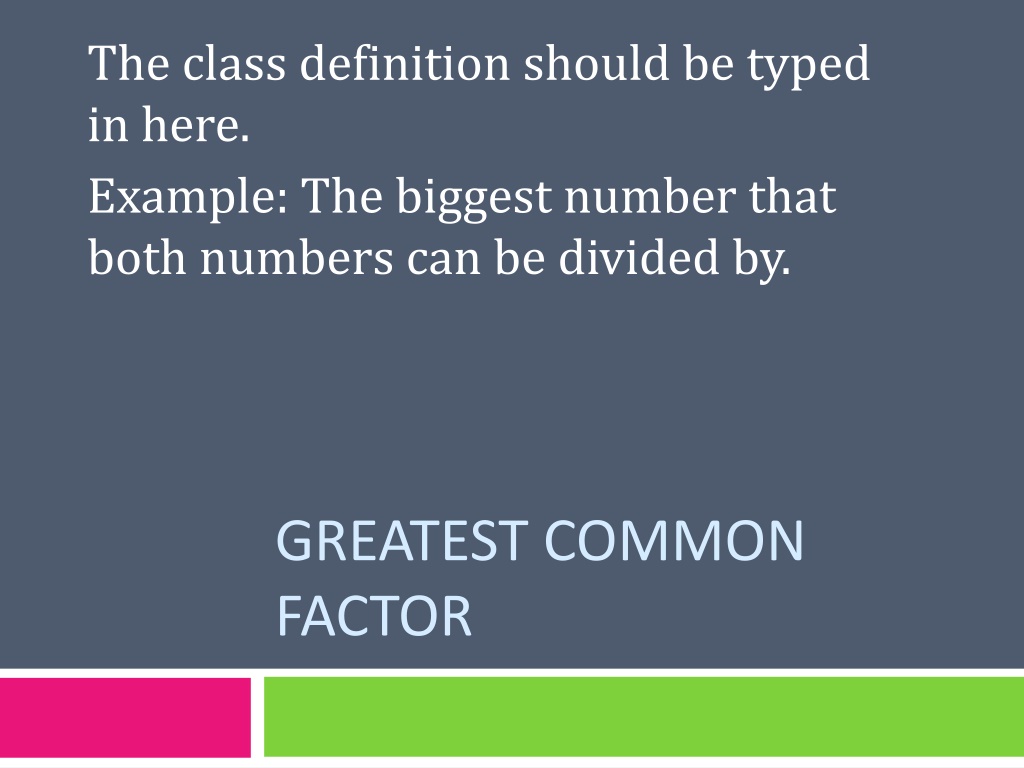
 undefined
undefined










